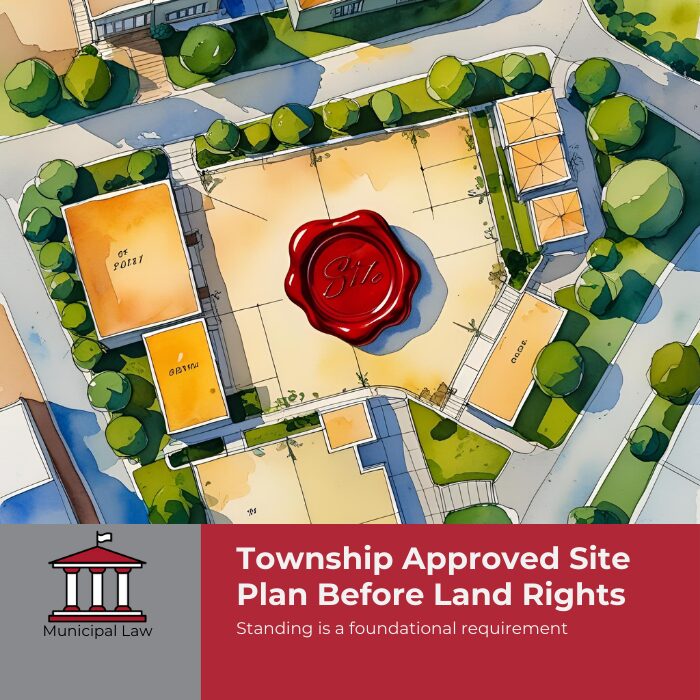Signed, Sealed, but Not Delivered
Written by Katelin Carter, Summer Associate

Thinking about applying for zoning approval on land you don’t yet own? You’ll need more than vague testimony and a hopeful handshake. In 23 Max, LLC v. Maxatawny Township, the Commonwealth Court reminded applicants that standing isn’t a formality, it’s a foundational requirement.
23 Max, LLC sought conditional use approval to build a nearly one-million-square-foot warehouse on farmland in Maxatawny Township. The parcel was owned by Anna Tercha (now deceased) and her daughter, Kate Tercha, as co-trustees. 23 Max claimed it had a conditional sales agreement to purchase the land, but never submitted the agreement or any written documentation. At a series of public hearings, their civil engineer testified that a deal existed but couldn’t describe its terms, wasn’t a party to it, and never produced a copy. Opposing neighbors seized on this, arguing 23 Max had no legal standing to apply for development approval since they had not made an adequate showing that they owned or would own the land.
The Township’s Board of Supervisors agreed and denied the application. That decision was upheld by the Berks County Court of Common Pleas and again by the Commonwealth Court, which emphasized that under the Municipalities Planning Code (MPC), applicants must prove they have either a legal or equitable interest in the property. That could include ownership, a lease, or a contract to purchase. But bald assertions or vague testimony aren’t enough, especially when the only witness doesn’t know the details of the supposed agreement.
On appeal, 23 Max argued that its signed and sealed site plans had been reviewed by the Township’s Planning Commission and zoning officer without objection. But the Court made clear that procedural review doesn’t equal approval of standing. The burden is on the applicant to prove a legitimate interest in the land, not on the Township to investigate or disprove it.
The bottom line: You can’t build a warehouse on shaky legal footing. If you don’t bring the paperwork proving your right to develop the land, your application is going nowhere fast.

